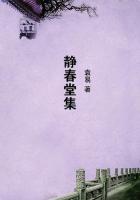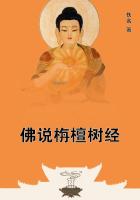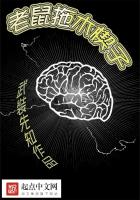The poet proceeds to state his intimacy with the deceased, and the constancy of the young man's attendance on public worship, which was regular, and had such effect upon two or three other that were influenced by his example:
So that my Muse 'gainst Priscian avers, He, only he, WERE my parishioners;Yea, and my only hearers.
He then describes the deceased in person and manners, from which it appears that more accomplishments were expected in the composition of a fine gentleman in ancient than modern times:
His body, though not very large or tall, Was sprightly, active, yea and strong withal.
His constitution was, if right I've guess'd, Blood mixt with choler, said to be the best.
In's gesture, converse, speech, discourse, attire, He practis'd that which wise men still admire, Commend, and recommend. What's that? you'll say.
'Tis this: he ever choos'd the middle way 'Twixt both th' extremes. Amost in ev'ry thing He did the like, 'tis worth our noticing:
Sparing, yet not a niggard; liberal, And yet not lavish or a prodigal, As knowing when to spend and when to spare;And that's a lesson which not many are Acquainted with. He bashful was, yet daring When he saw cause, and yet therein not sparing;Familiar, yet not common, for he knew To condescend, and keep his distance too.
He us'd, and that most commonly, to go On foot; I wish that he had still done so.
Th' affairs of court were unto him well known;And yet meanwhile he slighted not his own.
He knew full well how to behave at court, And yet but seldom did thereto resort;But lov'd the country life, choos'd to inure Himself to past'rage and agriculture;Proving, improving, ditching, trenching, draining, Viewing, reviewing, and by those means gaining;Planting, transplanting, levelling, erecting Walls, chambers, houses, terraces; projecting Now this, now that device, this draught, that measure, That might advance his profit with his pleasure.
Quick in his bargains, honest in commerce, Just in his dealings, being much adverse From quirks of law, still ready to refer His cause t' an honest country arbiter.
He was acquainted with cosmography, Arithmetic, and modern history;With architecture and such arts as these, Which I may call specifick sciences Fit for a gentleman; and surely he That knows them not, at least in some degree, May brook the title, but he wants the thing, Is but a shadow scarce worth noticing.
He learned the French, be't spoken to his praise, In very little more than fourty days."Then comes the full burst of woe, in which, instead of saying much himself, the poet informs us what the ancients would have said on such an occasion:
A heathen poet, at the news, no doubt, Would have exclaimed, and furiously cry'd out Against the fates, the destinies and starrs, What! this the effect of planetarie warrs!
We might have seen him rage and rave, yea worse, 'Tis very like we might have heard him curse The year, the month, the day, the hour, the place, The company, the wager, and the race;Decry all recreations, with the names Of Isthmian, Pythian, and Olympick games;Exclaim against them all both old and new, Both the Nemaean and the Lethaean too:
Adjudge all persons, under highest pain, Always to walk on foot, and then again Order all horses to be hough'd, that we Might never more the like adventure see.
Supposing our readers have had enough of Mr. Symson's woe, and finding nothing more in his poem worthy of transcription, we return to the tragic story.
It is needless to point out to the intelligent reader that the witchcraft of the mother consisted only in the ascendency of a powerful mind over a weak and melancholy one, adn that the harshness with which she exercised her superiority in a case of delicacy had driven her daughter first to despair, then to frenzy. Accordingly, the Author has endeavoured to explain the tragic tale on this principle. Whatever resemblance Lady Ashton may be supposed to possess to the celebrated Dame Margaret Ross, the reader must not suppose that there was any idea of tracing the portrait of the first Lord Viscount Stair in the tricky and mean-spirited Sir William Ashton. Lord Stair, whatever might be his moral qualities, was certainly one of the first statesmen and lawyers of his age.
The imaginary castle of Wolf's Crag has been identified by some lover of locality with that of Fast Castle. The Author is not competent to judge of the resemblance betwixt the real and imaginary scenes, having never seen Fast Castle except from the sea. But fortalices of this description are found occupying, like ospreys' nests, projecting rocks, or promontories, in many parts of the eastern coast of Scotland, and the position of Fast Castle seems certainly to resemble that of Wolf's Crag as much as any other, while its vicinity to the mountain ridge of Lammermoor renders the assimilation a probable one.
We have only to add, that the death of the unfortunate bridegroom by a fall from horseback has been in the novel transferred to the no less unfortunate lover.















